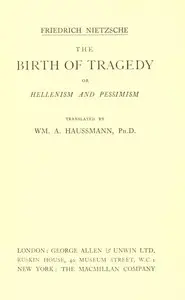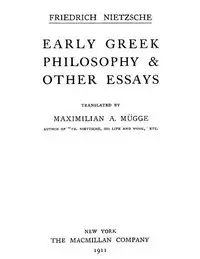"The Case of Wagner, Nietzsche Contra Wagner, and Selected Aphorisms" by Friedrich Nietzsche is a collection of philosophical essays written in the late 19th century. The work critiques the composer Richard Wagner, exploring the complexities and implications of Wagner's music and ideals in relation to European culture and decadence. Nietzsche addresses his disillusionment with Wagner, showcasing a shift from admiration to criticism, as he grapples with the ramifications of Wagner's artistic influence. At the start of this collection, Nietzsche reflects on his past devotion to Wagner and articulates a deep-seated conflict between his philosophical ideals and the music that once enchanted him. He describes the liberating experience of moving away from Wagner's aesthetic grip, contrasting it with his newfound appreciation for Bizet's music, which he finds life-affirming and enriching. Nietzsche frames Wagner's work as emblematic of a broader cultural decline, characterized by a decadent style that seduces rather than uplifts the listener, ultimately leading to a deterioration in artistic standards and moral integrity. (This is an automatically generated summary.)

The Case of Wagner, Nietzsche Contra Wagner, and Selected Aphorisms.
By Friedrich Wilhelm Nietzsche
"The Case of Wagner, Nietzsche Contra Wagner, and Selected Aphorisms" by Friedrich Nietzsche is a collection of philosophical essays written in the la...
Friedrich Wilhelm Nietzsche was a German classical scholar, philosopher, and critic of culture, who became one of the most influential of all modern thinkers. He began his career as a classical philologist before turning to philosophy. He became the youngest person to hold the Chair of Classical Philology at the University of Basel in Switzerland in 1869, at the age of 24, but resigned in 1879 due to health problems that plagued him most of his life; he completed much of his core writing in the following decade. In 1889, at age 44, he suffered a collapse and afterward a complete loss of his mental faculties, with paralysis and probably vascular dementia. He lived his remaining years in the care of his mother until her death in 1897, and then with his sister Elisabeth Förster-Nietzsche. Nietzsche died in 1900, after experiencing pneumonia and multiple strokes.


















